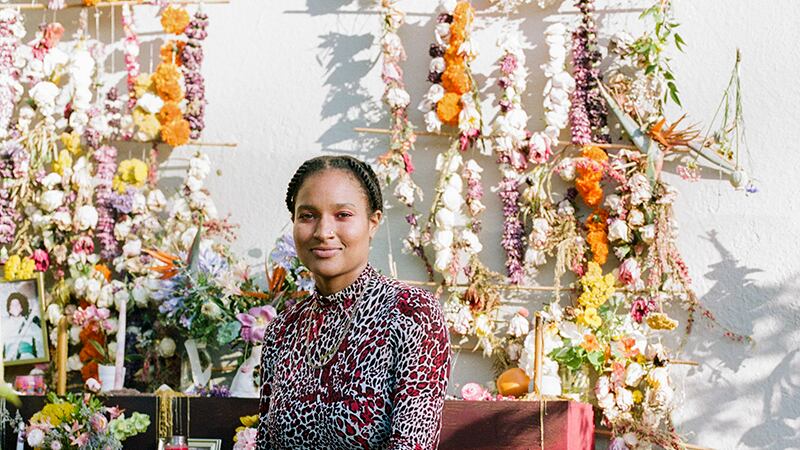By Jordan Hernandez
By 2016, Salimatu Amabebe had helped introduce plant-based Nigerian cuisine to a wide range of American diners. But doing so had left them exhausted.
"I got pretty burnt out on the pop-up meals," says the chef and artist, "because what happens when you're making Nigerian food or food from your own culture for a largely white audience is that you get asked a lot of the same questions. I felt pressured to present the food that I was making—at least by the company that I was working with—in a palatable way."
Amabebe began to reimagine what a pop-up could look and feel like. In 2017, Amabebe and poet Annika Hansteen-Izora launched Black Feast, a dinner series using art and food to honor what really matters to their vision: serving and celebrating Black people. Meals were hosted in California, New York and Amabebe's home base of Portland, each one themed on a different Black artist, such as Audre Lorde or Nina Simone.
But then the pandemic happened and Amabebe had to shift once again.
Since June, Black Feast has pivoted its business model from a multicourse meal to what it calls "Love Letters to Black Folks"—free, intimate care packages featuring donated items, available weekly for Black Portlanders on a reservation basis.
The packages feature everything from flowers, coffee and chocolate to skin care products, CBD and incense to literal love letters from different Black writers and vegan desserts made by Amabebe—past offerings have included peach crisp with maple ginger cashew cream and candied pecans, pineapple coconut upside-down cake with algae buttercream and lime truffles, and black sesame chocolate cake with yuzu cashew cream and butterscotch.
"It has been overwhelmingly positive," Amabebe says of the response, "though people in the beginning are always skeptical and suspicious of being given something for free and feel undeserving."
At a recent pickup, Amabebe gave away 112 packages. The program has been so successful, they're now hoping to create a physical space for self-care items, with the goal that Black people would come to them with their needs.
As for Black Feast, Amabebe recognizes the loss in not sharing a communal meal, but says they are "finding ways to work around that and to still be able to offer something this way," even if it means going virtual.
"I have some thoughts and ideas of what I would like it to look like in the future, so I'm trying to dream those up," Amabebe says. "I want to continue to make art and food available for free for Black folks. That is my priority—to keep doing this work forever."
Reservations for the final Love Letters box are open now. RSVP at msha.ke/black.feast.
